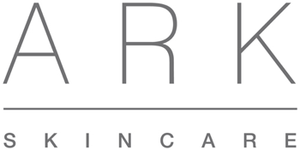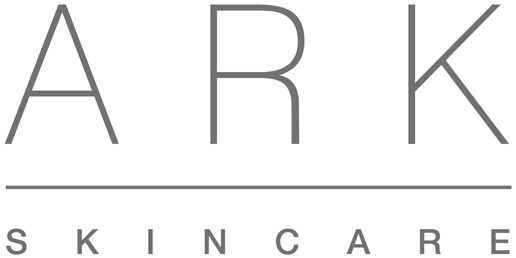How Does Stress Affect Your Skin?
The impact of internal and external stresses on your skin and what to do about it
Skin is your biggest organ and often acts as a signal to what is going on within our bodies both physiologically and psychologically. Understanding our skin can be key to understanding our overall health.
There is a clear link between stress and skin health. The purpose of this guide is to help us understand what factors may cause stress to our skin, and how best to resolve any skin concerns which may occur.
Click below to jump to a section...
Can stress cause skin problems?
The simple answer is yes. But let's delve a little deeper as to why and how...
There are three main types of stress that can have a noticeable impact on your skin:
1. ENVIRONMENTAL STRESSES
Environmental stressors are essentially any external factors from the world around you that cause damage to your skin. For instance: UV damage, extremes of external temperature and high winds, as well as excessive central heating or air conditioning indoors. These environmental stresses can all strip moisture out of your skin, leading to dehydration as well as damage to your skin's elastin, allowing fine lines and wrinkles to appear.
Pollution, smoking, alcohol and UV light are all also environmental/lifestyle factors that are known to create 'free radicals' (unstable molecules), which can cause havoc with your skin, leading to some of the concerns we will discuss later in this article. Especially when you are younger, your skin is usually able to defend against the stresses of free radicals so the damage tends to be minimal. But, over time, natural ageing processes and a sustained unhealthy lifestyle can reduce your skin's defences to them, leading to cell damage and long-term, frequent skin concerns.
2. PYSCHOLOGICAL STRESSES
Psychological stress, axiety and lack of sleep can affect our whole wellbeing. Such issues are often visible on the skin through new regular concerns (such as blemishes and skin hyper sensitivity), making us look tired (dark circles) or even older than we are (fine lines and wrinkles). Helping reduce stress can often result in improvements to these skin concerns. However, we know how easy it can be to find yourself trapped in a viscious circle of stress, skin problems, more stress from skin problems and then more skin problems from stress! Minimising psychological stress is much, much easier said than done, which is why our anti-stress skincare tips later in this guide are designed as baby steps to helping release pressure and practice self-love.
3. HORMONAL STRESSES
Sometimes stress is completely out of your control! This is often the case with hormonal stress. Hormones play a key physiological function throughout our lives and they have a huge effect on the health and appearance of our skin. The changes in hormone levels during perimenopause and menopause are especially widely acknowledged to have a significant effect on the look and feel of the skin, making it look and feel dryer. But, for people of all ages, our hormone fluctuations directly influence your ability to respond to and regulate stress and anxiety, meaning that your skin will be more susceptible to the knock-on affect of stress during different stages of your natural bodily cycle.
Common stress-related skin issues
Blemishes & Acne
Blemishes, breakouts and spots are often especially linked to periods of high psychological or hormonal stress. When you're stressed, cortisol levels rise (the stress hormone) and this can trigger your oil glands to produce more oil, which can subsequently lead to acne.
Irritation & Eczema
Many eczema sufferers notice flare-ups of the condition coinciding with bouts of particular stress, or with periods when they've been exposed more than usual environmental stresses - especially changes in the weather or other external irritants like cigarette smoke or certain fragrances.
Redness & Rosacea
A study by the National Rosacea Society of over 700 Rosacea sufferers found that 91% saw flare-ups during periods of notable emotional stress, with stress often quoted as one of the leading causes of chronic redness (source). Rosacea sufferers are also particularly susceptible to environmental stresses, with UV radiation - for instance - known to trigger it.
Dark Circles & Eye Tiredness
Unsurprisingly, the sleeplessness and agitation that comes hand-in-hand with stress contributes to your skin physically looking more tired. A stress-enduced facial bugbear for many is the appearance of dark under-eye circles, which is the result of tiny broken capillaries showing through as dark shadows. According to chemist Dr Joe Cincotta, stress actually causes more blood to be directed to your main organs, leaving your face looking more drained and 'eye bags' more visible (source).
3 Tips for Remedying Stressed-Out Skin
Tip #1: Cleanse, cleanse, cleanse!
Particularly when it comes to environmental stresses, cleansing is your number one weapon against damage and irritation. Cleansing twice a day enables you to remove any dirt, oil, pollution or excess sebum from your skin. It resets your skin and, in the long run, keeps it looking and feeling healthier for longer.
Even better than simply cleansing, however, is double cleansing! Double cleansing means cleansing once with an oil-based cleanser to remove pollutants and then again with a water-based cleanser to leave skin thoroughly clean.
Tip #2: Get Some Beauty Sleep
A consistently good sleep routine is crucial! Stress is often associated with sleep deprivation, with a lack of sleep limiting your body's ability to respond to external stimuli in a rational and less-stressful way.
Sleep is also the ultimate form of recovery, relaxation and a vital part of your skin care regime. Sleep deprivation can affect your skin's health, as skin cell regeneration happens during sleep. Studies show that lack of sleep over time can cause difficulties in collagen production, the very thing keeping your skin looking supple and youthful! (source)
What's more, the metabolic activity of skin cells peaks during sleep, meaning that skincare products applied before bed and much more likely to be effective.
Check out our Nighttime Skincare Routine Guide for more information.
Tip #3: Weekly Pamper Night
So, you've cleansed your skin to help prevent the damage from environmental stresses, you've prioritised sleep in order to minimise hormonal stresses... it's now time to give yourself some TLC to deal with your psychological stresses. An at-home spa night, with candles, a face mask and maybe a bath offers the perfect opportunity to unwind and focus on relaxing. Take time away from what is stressing you and create a safe space for yourself where your day-to-day problems aren't allowed in. Just once a week is enough to make a difference to your overall wellbeing and skin health.
The best anti-stress skincare
SKIN PERFECTING SKINCARE
De-Stress Serum
(30ml)
Antioxidant serum designed to protect the skin against stress and damage
Suitable for all ages, this soothing serum acts almost like a second skin, shielding even tired skin from pollution, environmental damage and sress. It leaves skin feeling silky and supple, diminishing signs of fatigue and redness.
100% vegan, dermatologically tested and suitable for those with sensitive skin.
Purifying, anti-pollution clay face masque
Formulated from an innovative multivitamin blend and anti-pollution complex, our Detoxifying Clay Masque is designed to target inflammation and blemishes by absorbing excess oils and drawing out impurities. Stressed skin is left visibly clearer, calmed and soft to the touch.
Also, for those that struggle with pyschological stresses, a little night-in with a face mask can go a long way!
Suitable for all ages, sensitive skin and vegans.
SKIN PERFECTING SKINCARE
Detoxifying Clay Masque
(55ml)
SKIN PERFECTING SKINCARE
Skin Protector SPF 30 Primer
(30ml)
SPF, primer & moisturiser all in one
A daily moisturiser that does it all.. make-up primer, sunscreen and mosturiser, all at the same time.
This Skin Perfector helps to protect against environmental stresses, especially those damaging UV rays. It also limits hydration loss thanks to Hyaluronic Acid, Vitamin E and Shea Butter.
Can be used alone or under make up. Suitable for all skin types, 100% vegan and dermatologically tested.




